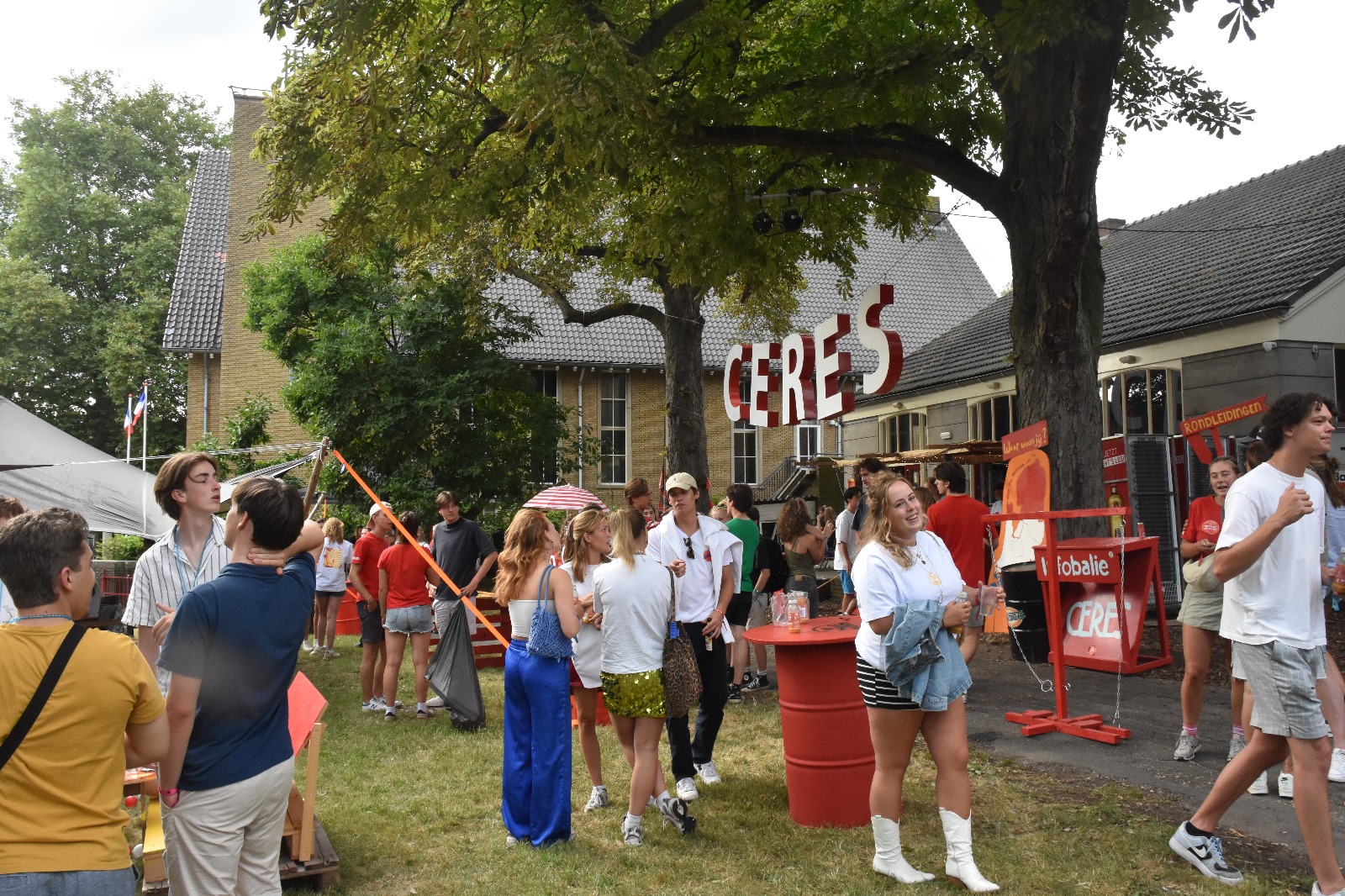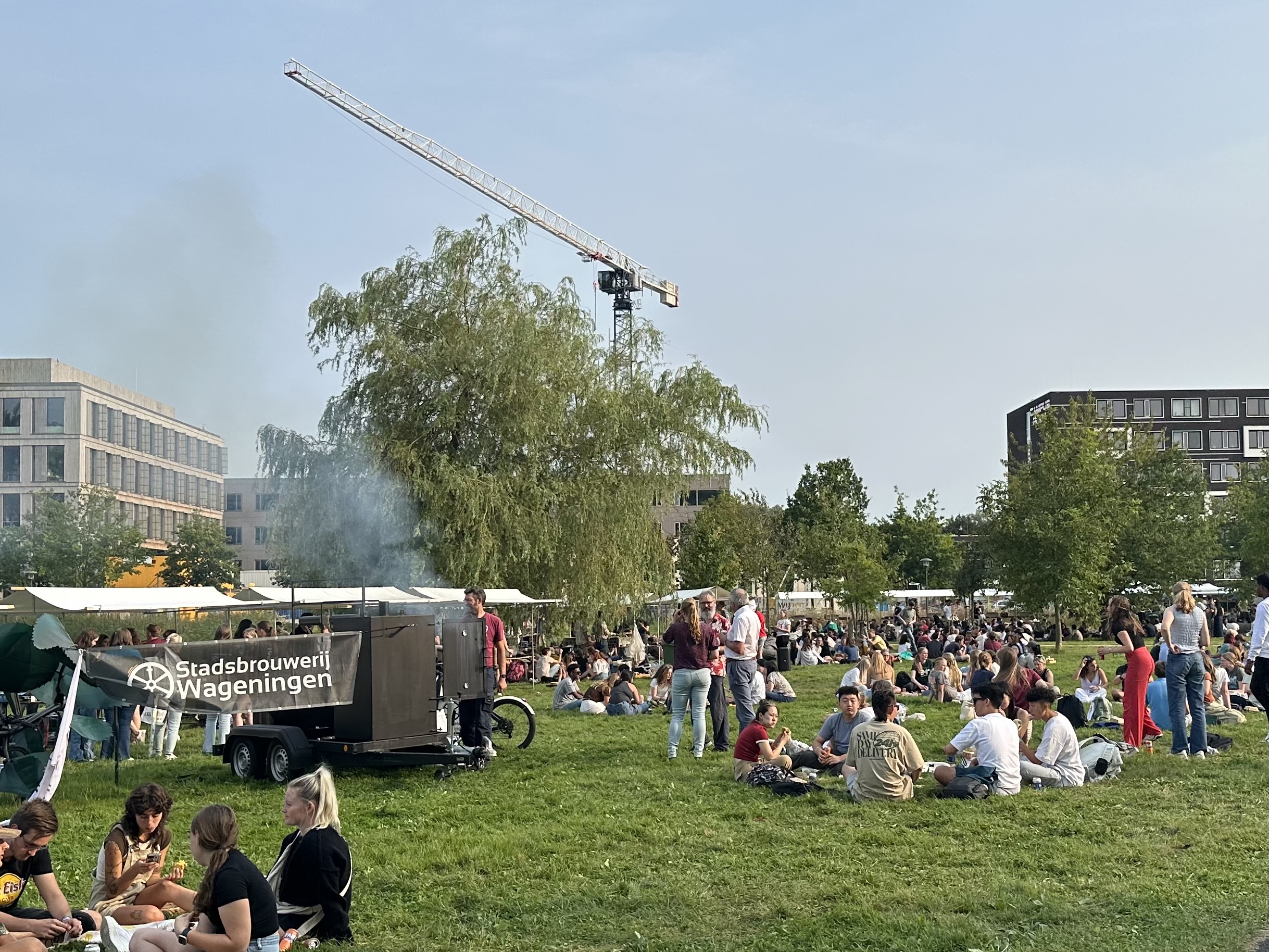There was much support for the AID’s decision to opt for a sustainable solution and organise an all-vegetarian barbecue. Still, there is also criticism, including a small protest during the barbecue on Monday evening.
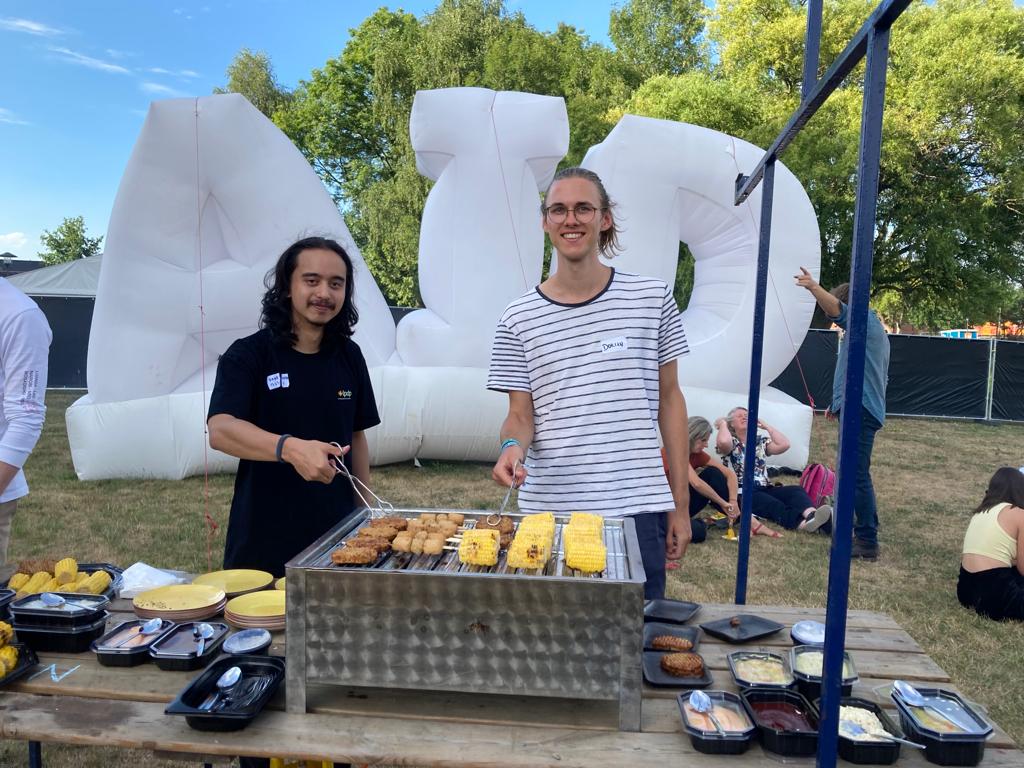
Right in front of the iconic inflatable AID letters, Doran Behling (on the right) is focused on grilling corn cobs and vegetarian burgers, unaware that he is a symbol of one of the most noteworthy changes in the 2022 AID: the introduction days are completely vegetarian. Behling doesn’t mind the lack of meat. ‘Oh really, is the entire AID vegetarian? I hadn’t noticed’, the new master’s student of Forest and Nature Conservation says. ‘But then, I never miss meat as I have been a vegan for a long time’, he declares.
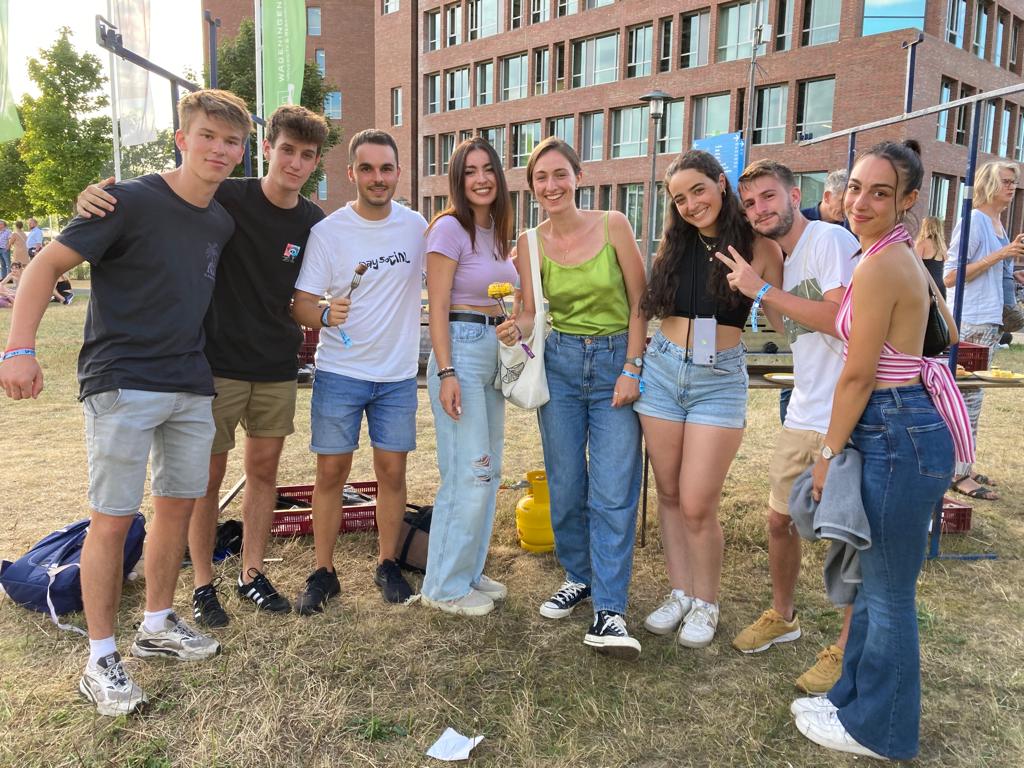
A group of Spanish students interviewed by Resource are not at all bothered by the vegetarian menu, even though it is a far cry from their typical Spanish diet in which meat takes a prominent place. They are much more bothered by the mealtimes during the AID. So early! ‘Normally, I would have just finished my lunch’, says one of the students, supported by loud cries of agreement from the others.
Pain
Animal Sciences alumna Fleur Bartels, however, is certainly concerned about what is served during the AID. When she saw the announcement on Facebook that the AID was to be entirely vegetarian, she was shocked. ‘I understand that Wageningen feels a responsibility to consider carefully what should be on the menu’, she says. ‘But the fact that the AID has opted to exclude meat completely hurts. It feels as if the animal sector is being cancelled, while there are so many WUR alumni who work hard every day with livestock farmers to achieve a more sustainable and more animal-friendly livestock sector.’
Bartels, who works for the Pig Farming Producers Organisation (Dutch acronym POV), reached out to Animal Sciences programme coordinator René Kwakkel to voice her concerns. She was not alone. Several alumni and relations from the sector expressed their displeasure, he says. ‘An all-vegetarian AID sends the message that Wageningen considers a fully vegetarian diet as the only sustainable option and is steering away from the livestock sector. That is absolutely not the case, but our alumni could easily interpret it that way.’
Indispensable link
Kwakkel would have preferred the AID to serve a few sustainable animal products in addition to the vegetarian menu, like Animal Sciences did for its own students during the barbecue (in consultation with the AID board and agreed upon before the outrage, Kwakkel stresses). Examples include pulled chicken from former laying hens. ‘I believe that such an approach conveys Wageningen’s message much better than a completely plant-based menu. The livestock sector is an indispensable link in a sustainable food system, for example, by using waste streams optimally. The Animal Sciences department is invested in issues such as these that concern sustainability and the protein transition. This should be reflected in the AID menu. An all-vegetarian menu is an oversimplification,’ says Kwakkel
Harmony
Despite the heated emotions, the atmosphere remains harmonious, to everyone’s relief. ‘There is more than enough polarisation with regards to the livestock sector,’ says Bartels. ‘Moreover, it’s the AID, and as a former student, I am fully aware that this is an unforgettable period during your study time. We want to keep it fun.’
The animal scientists and sector voiced their concerns in a letter to the executive board and the AID board and organised a ‘public-friendly’ activity condoned by WUR. The protest consisted of the presence of Bartels and two supporters at the barbecue, armed with flyers and pig ‘wuppies’ (fuzzy miniature pom-poms), to spark a dialogue on meat and the value of animal proteins for the food cycle.
The AID participants showed mixed responses to their presence. From a mere shrug –‘wow, so much outrage over a single vegetarian event’- to understanding and displays of support: ‘indeed, purely vegetarian is not the solution, a locally sourced menu would have been better’. In conclusion, neither a lack of food nor food for thought on this sunny AID evening.

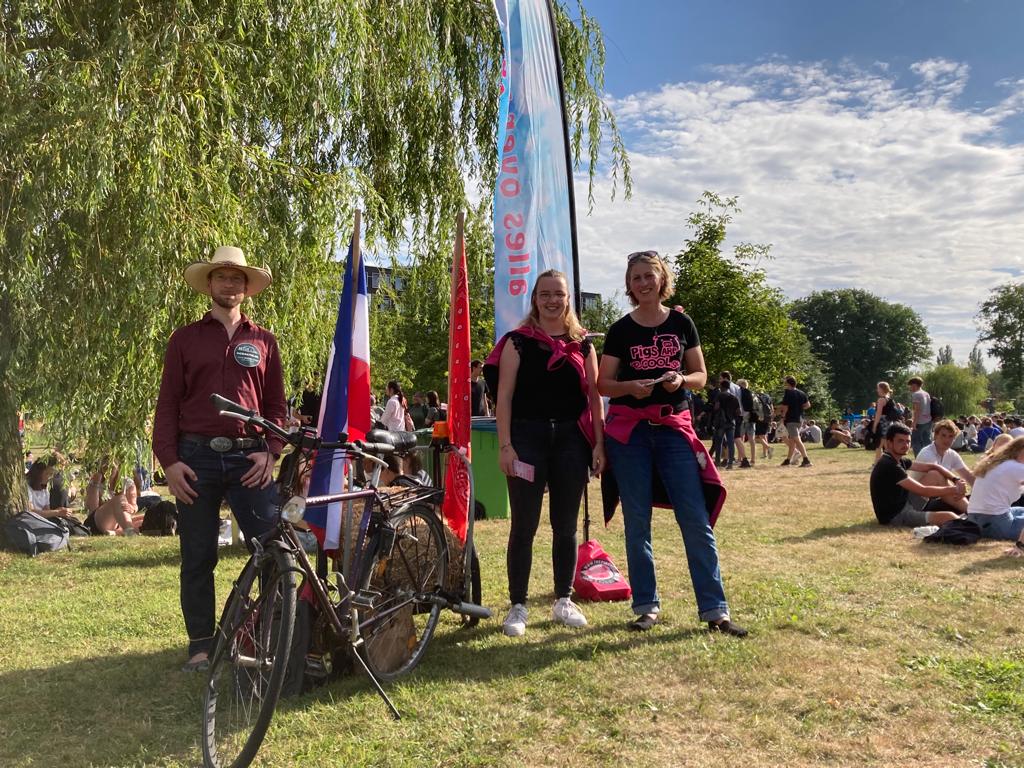 The protest was small and friendly. Alumna Fleur Bartels is on the right. Photo: Marieke Enter
The protest was small and friendly. Alumna Fleur Bartels is on the right. Photo: Marieke Enter 